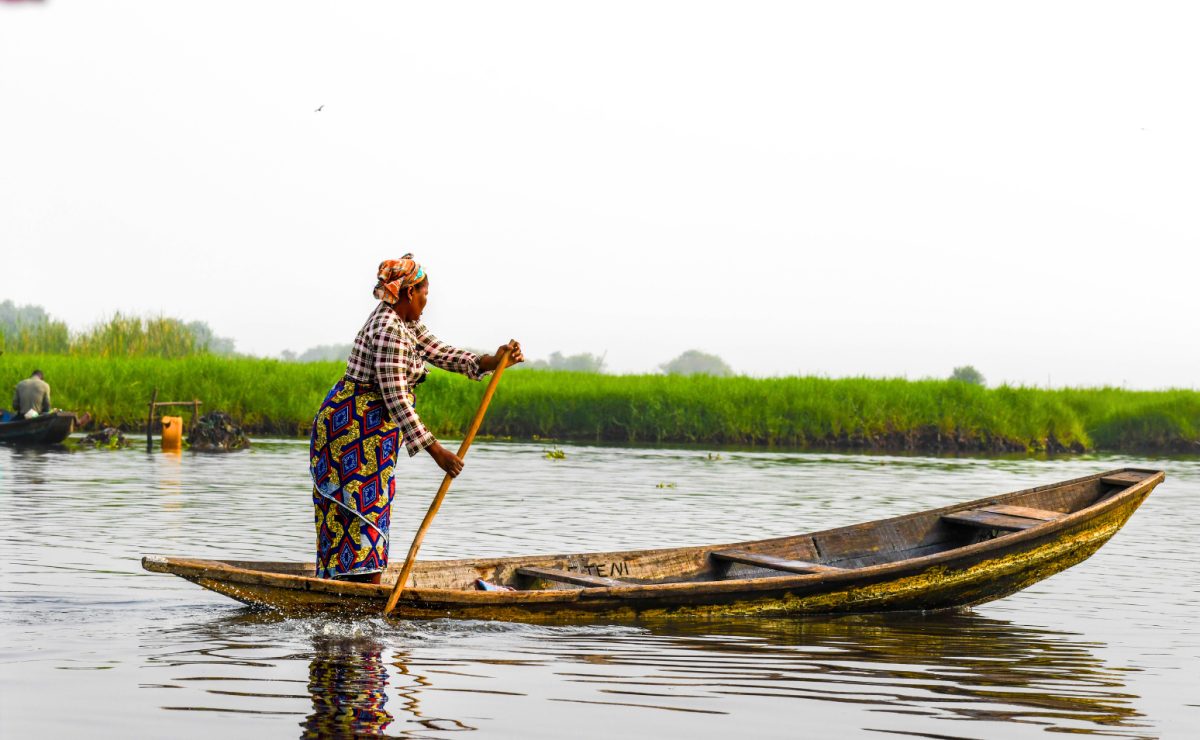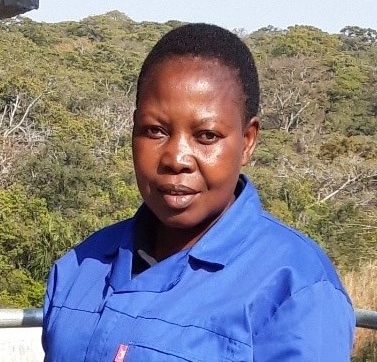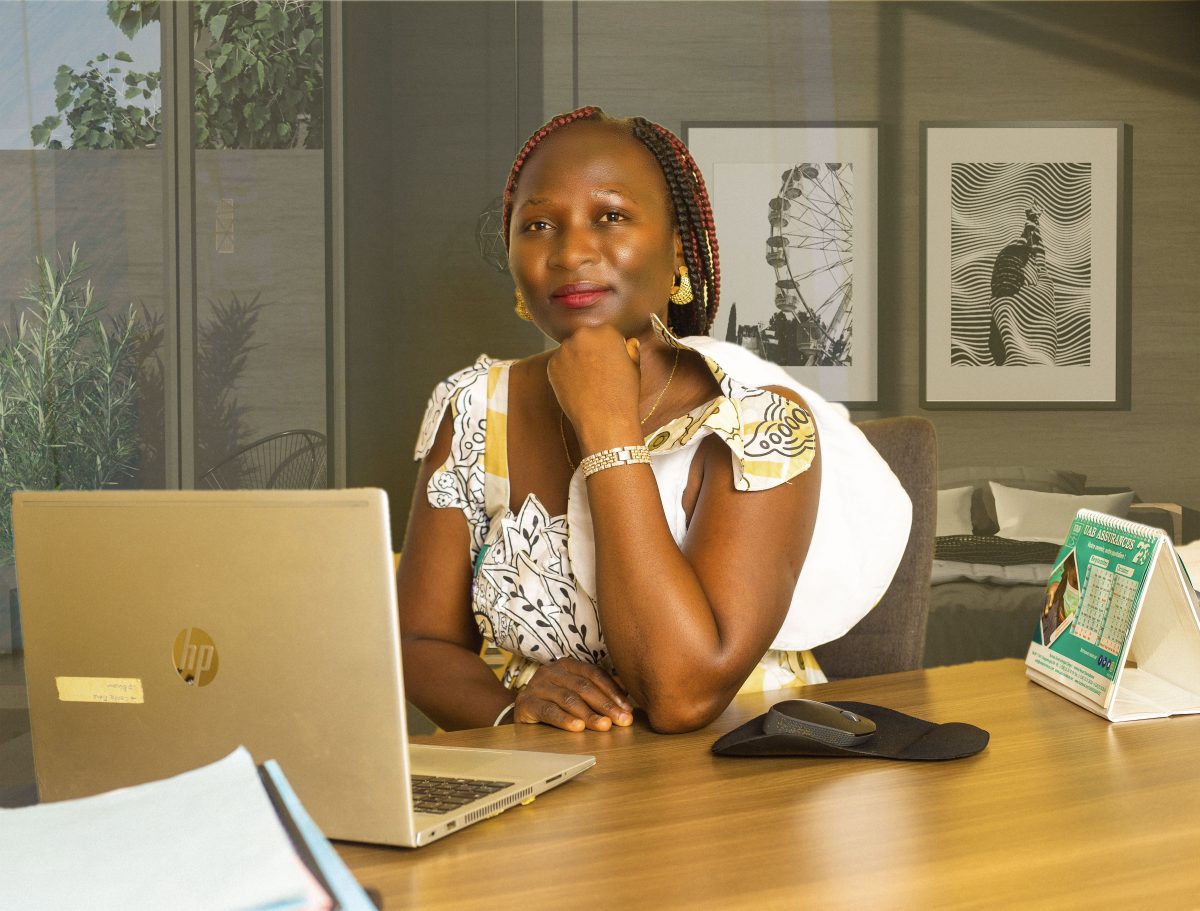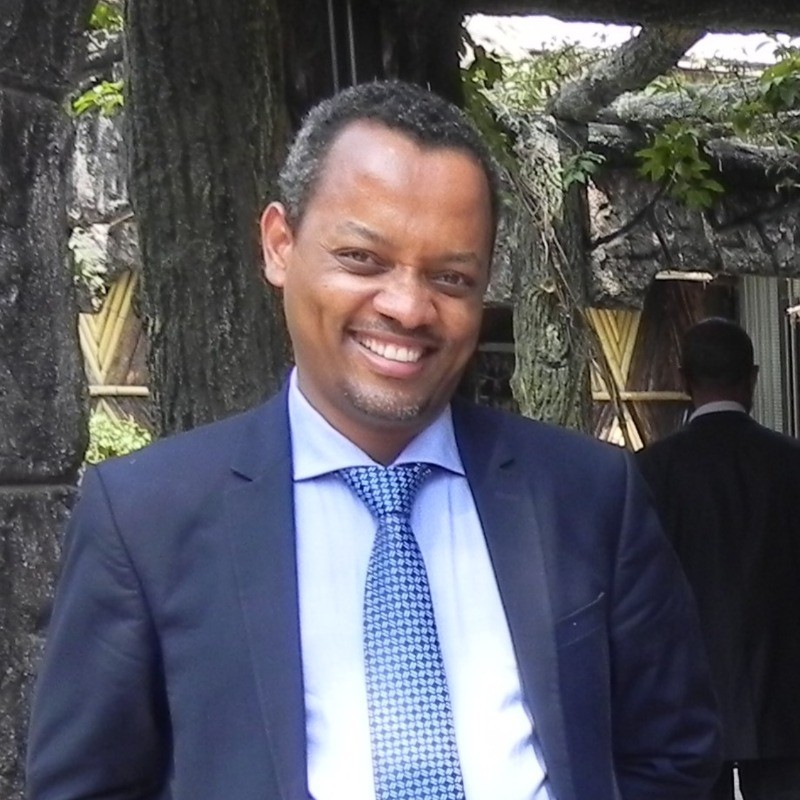Glass half full: An equal share for women in decisions on 60% of the world’s freshwater
Posted in : Blog on 3 March 2024

A woman stands on a pirogue on Lake Nokoue, Benin. ©Alexander Bee/ iStock Photo
As we approach International Women’s Day 2024, the Cooperation in International Waters in Africa (CIWA) is taking part in the critical, timely theme of investing in women to speed-up gender equality. CIWA has been accelerating its own efforts on gender equality within its work on transboundary water in sub-Saharan Africa, since 2020, by tackling deep-rooted traditions and social norms that prevent women from participating equally and making decisions with men.
Transboundary waters form 60% of the world’s freshwater resources worldwide; women form almost 50% (49.6%) of the world’s population. In Africa, 90% of water falls within 63 river basins shared by multiple countries. Because CIWA works towards the cooperative management of transboundary waters—the lakes, rivers, and underground aquifers that share or cross national borders—and their development, we also try out new and integrated ways to strengthen institutions in order to mainstream gender equality and social inclusion (GESI).
Today, most of the projects CIWA supports have systematically integrated GESI .
“Women are still woefully under-represented in the higher ranks of the workplace and among the policymakers and decision-makers who develop and implement our laws.” In 2020, Beatrice Kanyamuna-Polea, an engineer and senior hydrogeologist, led a CIWA-funded pilot project in Zambia that focused on mapping groundwater and developing wellfields. The Southern African Development Community (SADC) region has since incorporated GESI, creating an internship program to increase female representation. Read the full story here.

Mainstreaming gender and social inclusion
These initiatives have been turned into high-impact application toolkits and learning notes, which enable teams and partners to adapt programming and strengthen project design. Targeted training and technical assistance has been provided to strengthen gender equality and social inclusion in CIWA programs and through partners such as the Nile Equatorial Lakes Subsidiary Action Program Coordination Unit (NELSAP-CU), Eastern Nile Technical Regional Office (ENTRO), Nile Basin Initiative Secretariat (Nile-SEC), and Lake Victoria Basin Commission (LVBC).
“The training to work with communities to promote sustainable agriculture was really inspiring.” Asia Namusoke and other women were trained by the Nile Basin Discourse in 2021 with CIWA, as Climate Change Resilience Champions. Asia has since developed programs for others in her town and beyond. Read the full story here.

Expanding focus
We developed a tool kit to ensure projects map out the specific challenges vulnerable populations, such as women, face, and launched a communications campaign to promote the merits of empowering women as decision-makers, leaders, and technical experts within our cross-border water institutions. In part, this showcases how women have navigated operating in a male-dominated environment, so they can serve as role models to other women and girls.
“There is nothing more exhilarating than serving others and, as a woman, it is always with a joyful heart that one supports other women.” Abibata Ouattara is a water security specialist who worked on a CIWA project on groundwater for irrigation by farmers in the Sahel in 2022, focusing on the constraints that women faced in making use of irrigation. She believes in water, women, and their intersection. Read the full story here.

CIWA has also developed a strategy to tackle gender inequalities through changes in attitude. This transformative approach goes beyond counting the number of women who attend our meetings to identifying the many opportunities where men and women can—individually and collectively—tackle patriarchal norms.
Male Champion Initiative
CIWA also recently launched a pilot program called the Male Champion Forum because we believe men are often the key stakeholders, influencers and decision makers within transboundary water programs and institutions. They are therefore best positioned to challenge negative behaviors and practices of male counterparts that can block women’s effective input and leadership in shaping the transboundary water agenda.
“I want to engage in the Male Champion Forum to empower women in the work environment. They will help me share the work and projects.” Dereje Gebremichael, who formerly worked for Ethiopia’s Ministry of Water and Energy ,and one of the CIWA Male Champions who participated to the pilot launch in 2023, acknowledges that the promotion of gender equality has some benefits for men and that gender equality strengthens communities. “The community always gives men all the responsibilities in life: If I am a male champion working for gender justice, it makes the community a more powerful one. So, let’s empower men to work toward gender equality.” Read the full story here.

Learn more
Blogs and Podcasts
Sahel region: Training the next generation of groundwater specialists in the Sahel
Eastern Nile: The next generation of water professionals working towards a new era of cooperation
Southern Africa: Mathongonolo Mmese: An inspiring hydro geologist in Botswana
Resources
CIWA Program Annual Report 2023
Ensuring Gender and Social Inclusion is Considered at the Project Concept Phase


